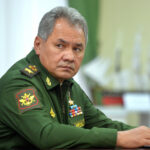The Constitutional Court of the Republic of Moldova on April 15 ruled that Moldovan President Maia Sandu can dissolve the current Parliament and call for snap elections. Such a ruling is a major win for pro-reform, pro-democracy, and pro-Western forces in a country split between pro-Russian and pro-Western forces.
The Harvard-educated President Maia Sandu campaigned on a platform promising to fight endemic corruption, promote democratic norms and policies, and align the country more closely with Europe. Her incumbent opponent, Igor Dodon, is the head of the country’s Socialist Party (PSRM) and represents the pro-Russian forces in the country. When President Sandu won the presidential election in November 2020, she was confronted with a parliament that was dominated by the PSRM and its allies – all hostile to the new president’s pro-Western, anti-corruption agenda.
The current composition of the parliament disproportionately represents the pro-Russian forces in the government, with polls showing that pro-Western parties, such as President Sandu’s Party of Action and Solidarity, poised to win nearly fifty percent of votes in an election. The PSRM has from the beginning attempted to thwart President Sandu’s agenda. After she won the election but before she was sworn in as president, the PSRM and its allies pushed through legislation (without any public consultation) to shift control of the Information and Security Service (ISS) from the President to the PSRM-controlled Parliament. The ISS functions as the main levers of control over the security of the country and the fight against corruption. This move triggered large protests in Chisinau, Moldova’s capital.
President Sandu has responded by pushing to dissolve the current parliament, which Sandu has described as a corrupted body that does not accurately reflect the will of the Moldovan people. Ion Chicu, the former Prime Minister of Moldova and a pro-Russian ally of Mr. Dodon, resigned shortly after President Sandu’s inauguration. She appointed Aureliu Ciocoi – another Dodon ally – as Interim Prime Minister. President Sandu then proceeded to nominate two different candidates for Prime Minister – the Moldovan Constitution states the President can dissolve the parliament if it fails twice to confirm a Prime Minister within a 45-day period – both of whom failed to be confirmed by the hostile Parliament.
Upon the failure of the second candidate to be confirmed, the PSRM-controlled Parliament introduced a two-month state of emergency ostensibly to deal with the pandemic. This was a tactic to delay Parliament’s dissolution and maintain the PSRM’s power as the Moldovan Constitution states that no elections can be held during a state of emergency. The Constitutional Court ruling in favor of President Sandu to dissolve parliament may put snap elections back on the agenda.
Igor Dodon and the PSRM have resorted to a combination of Parliamentary tactics and outright fearmongering. Mr. Dodon called the Constitutional Court’s favorable ruling for President Sandu rigged, suggesting that the President bought justices on the court like the oligarch Vladimir Plahotniuc, who is now in self-imposed exile in Turkey. He has also said that President Sandu is in the pocket of external powers – implying not so subtly Europe and the United States – and that she would drag Moldova into the Ukrainian conflict and a larger, general European war.
And on April 15, Mr. Dodon announced in a TV interview that the PSRM would use Parliament to block the allocation of funds to stage early parliamentary elections until the COVID-19 pandemic is over. The budget required, nearly $7.25 million, can only be adopted by the prime minister with the backing of a majority of the parliament. Dodon has also warned that the Parliament (or rather, the PSRM and its allies) might not recognize the Constitutional Court’s ruling granting President Sandu the right to dissolve the parliament.
While President Sandu focused her campaign on combating corruption as opposed to foreign policy and resolving the ongoing frozen conflict in Transnistria, she has called for the departure of Russian troops operating in the territory. Mr. Dodon has long voiced support for the continued Russian presence in Transnistria, claiming it alone prevents renewed fighting.

